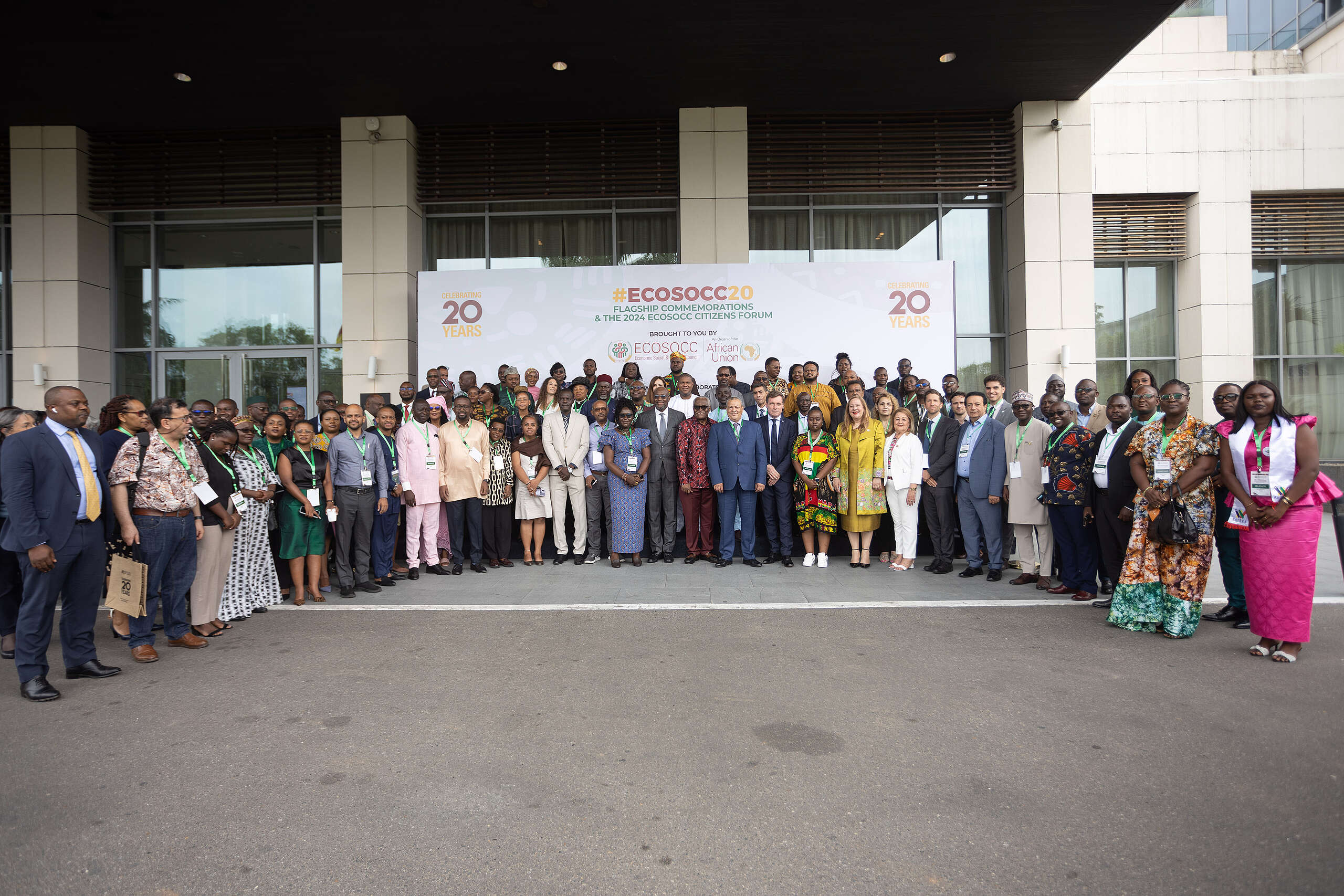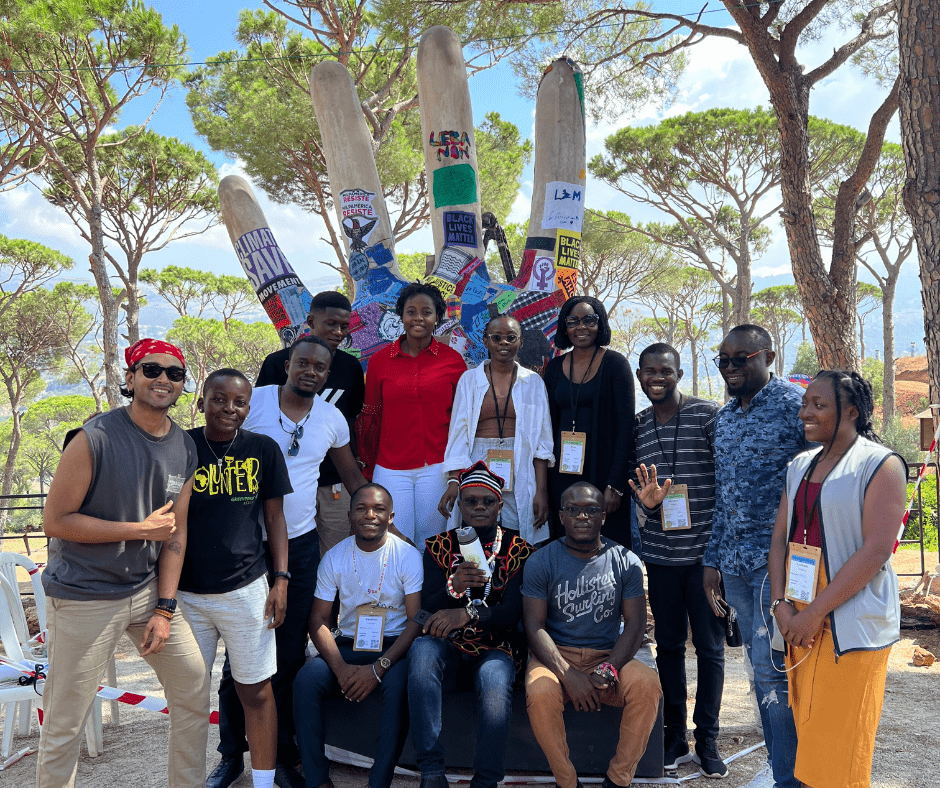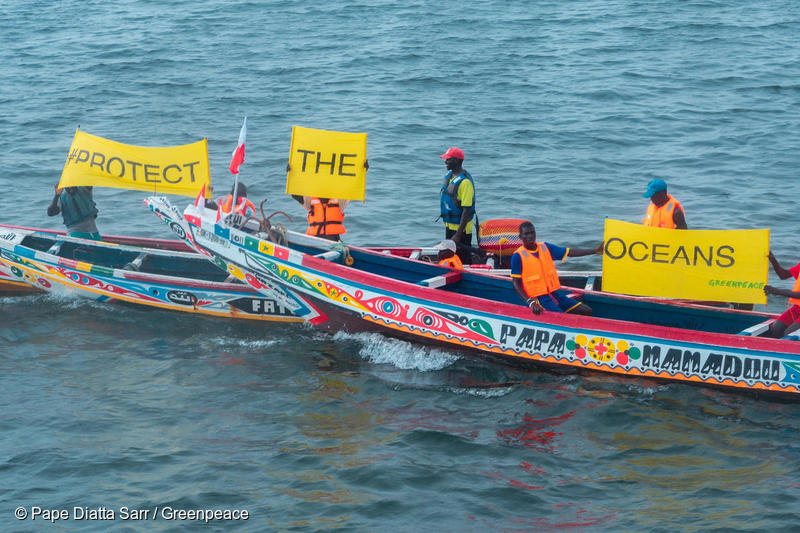The Africa Climate Summit marks a new beginning for Africa
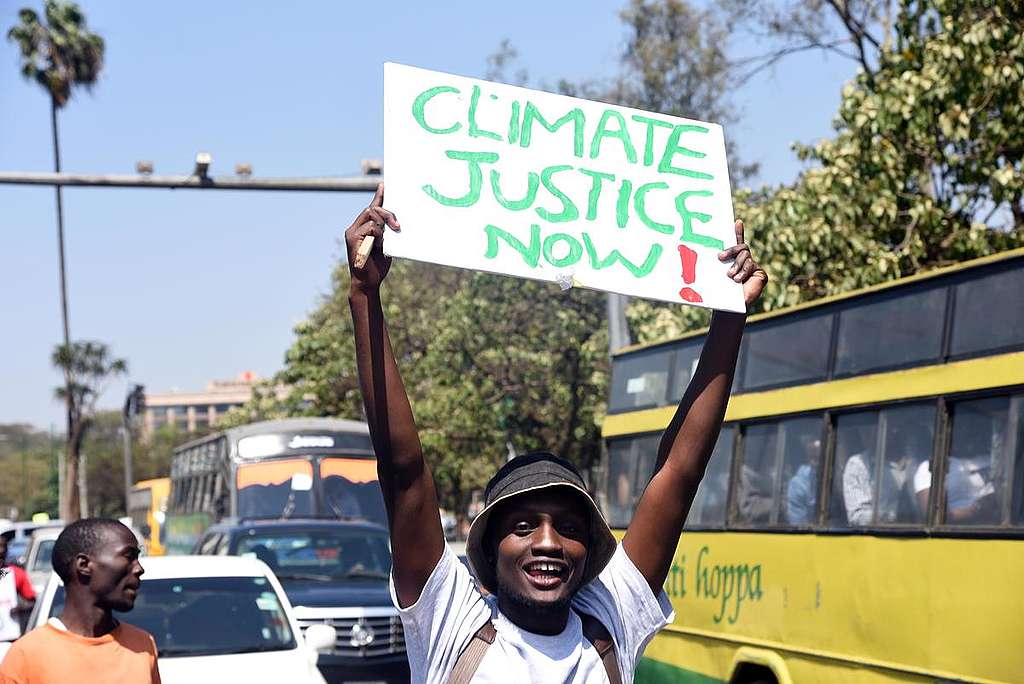
For ages, Africa has been perceived as a victim of worsening climate change despite its low carbon footprint. What this narrative has done is undermine Africa’s ability to fight climate change, which is why the Africa Climate Summit (ACS) is a timely event.
The summit will be happening between 4th and 6th September during the Africa Climate Week at the Kenya International Conference Center (KICC) in Nairobi. A first of its kind in Africa, the climate summit will be co-hosted by the Kenyan government and the African Union Commission under the theme “Green Growth and Climate Finance for Africa and the World.”
Several heads of state and delegates from within and beyond the continent, intergovernmental organisations, development partners, civil society organisations, the private sector, and youth are expected to attend to deliberate on climate change and how to tackle it to fast-track Africa’s development.
As these groups gather to hold dialogues about climate change in Africa, they must acknowledge the desires, hopes and concerns of the people the summit is meant to serve: Africans.
Issues of focus that should take precedence during the Africa Climate Summit.
The climate emergency
Extreme weather events in Africa have become more intense in recent years, exemplified by the frequent droughts, heatwaves, floods, and tropical cyclones across the continent.
Cyclone Freddy, the most powerful and longest-lasting tropical cyclone to be recorded, which struck Zimbabwe, Malawi, and Mozambique in the first quarter of 2023, is an example of the extreme weather events being witnessed in Africa due to the climate crisis. In the aftermath of the cyclone, millions of people lost their homes and others their lives. Flooding also affected crop yields, which led to hiked food prices, leaving millions to grapple with food insecurity.
Elsewhere in the Horn of Africa, millions are facing severe food insecurity owing to the prolonged drought in the region, and the increasing cost of living is only worsening the situation.
Other ways the climate crisis has affected the continent are by causing poor health outcomes and stalling socioeconomic development. Healthwise, WHO estimates that about 250,000 people may succumb to climate-change-related illnesses between 2030 and 2050. On the other hand, low rainfall has significantly lowered agricultural productivity, threatening the capacity of many African countries to sustain their growing populations.
Such events make clear the need to design efficient climate adaptation and resilience mechanisms. Thankfully, adaptation and resilience to climate risk is one of two cross-cutting themes for the Africa Climate Summit.
Climate financing
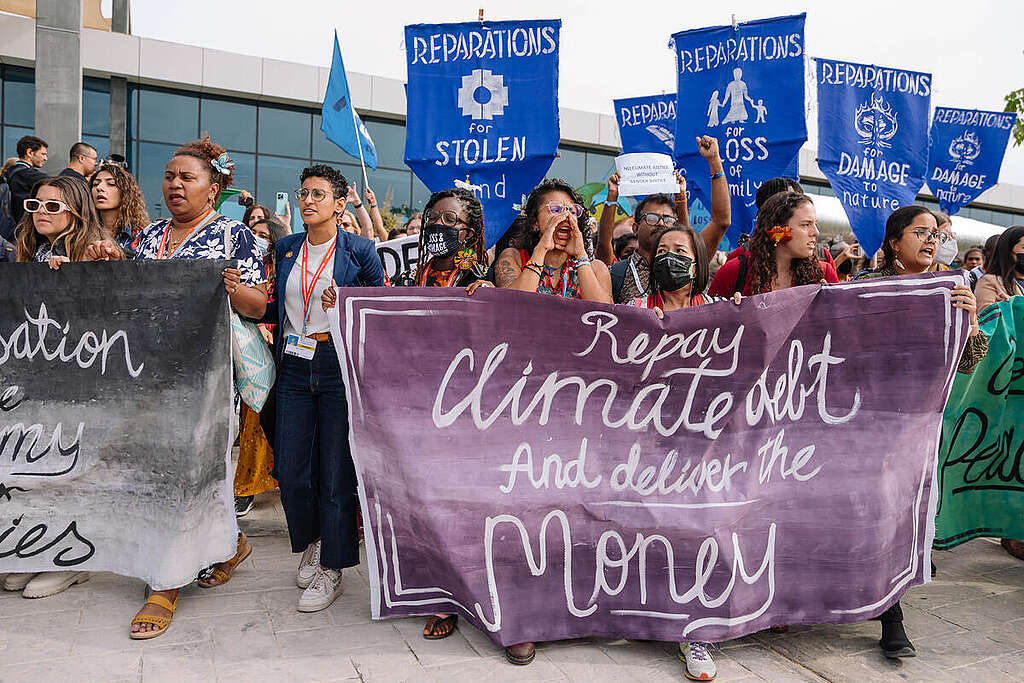 © Marie Jacquemin / Greenpeace
© Marie Jacquemin / GreenpeaceWe cannot talk about adapting and building resilience to climate change without addressing the capital required to do so. For Africa, the cost of adapting to climate change is too high and is estimated to cost $50 billion annually by 2050. Fortunately, climate financing and carbon credits have been marked as a priority agenda for the Africa Climate Summit. However, African heads must take a different approach during these discussions if any real benefits are to be accrued.
In 2009, wealthier countries pledged to jointly mobilise $100 billion annually starting in 2020 through 2025 to support developing countries in attaining their climate goals. Over a decade later, these countries are yet to make good on their promise after delivering only $83.3 billion in 2020. Failing to meet the agreed-upon pledges has increased the vulnerability of developing countries to severe climate threats.
Most recently, during COP 27 held in Egypt last year, developed nations agreed to set up a loss and damage fund for underdeveloped countries vulnerable to climate change, but the fund is yet to be operationalised even though COP28 is only a few months away.
Talk is cheap, but real change requires real action. African leaders must use the Africa Climate Summit to redefine climate financing and to demand climate restitution from wealthier nations.
Ditching extractivist economic models
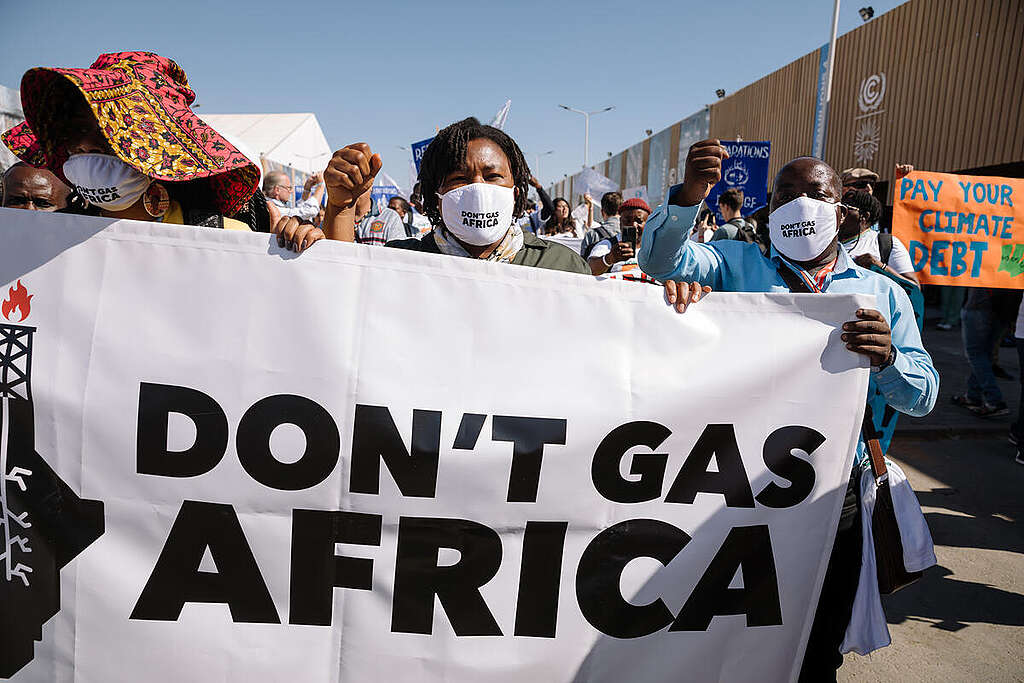
The persistent idea that Africa’s infinite natural treasures are the continent’s only hope for development is misguided and untrue. Such a narrative only plays into the extractive industry’s agenda, as does the notion that exploiting these treasures is the only way the continent can sustain its rapidly growing population.
Extractivism is often sold as a gateway to job creation, livelihood sustenance, and overall economic growth. However, it only invites undesirable outcomes that have proven disastrous in countries across the continent.
Take, for instance, the Democratic Republic of Congo (DRC). The country is home to the world’s largest tropical peatlands. In recent years, the tree cover in the Congo Basin has declined steeply due to oil and gas exploration. But this has not improved the people’s wellbeing. Instead, an estimated 62% of the country’s population remains in abject poverty, earning below $2.15 a day. The conflict in Mozambique due to natural resource extraction is no different, as it has caused more damage than improvement to the nation’s citizens.
The reality is that extractivism is a ticking time bomb. It destroys the livelihoods and wellbeing of local communities and impedes the growth of local businesses and industries. It does not help that African politics are marred by broken governance systems and corruption. Ultimately, only the elite profit from extractivist economic models by auctioning natural treasures to the highest bidder, leaving a trail of environmental chaos.
The Africa Climate Summit is the ideal opportunity to counter these narratives and to design solutions that align with African values.
Africa’s development does not have to be rooted in extractivism for economies to thrive.
This summit offers us a chance to retrace our traditional values. Historically, African societies have flourished all while coexisting in harmony with nature. Their respect for nature, evident through their food production and consumption habits, their creative art forms, and their sense of community, portrays African greatness.
We owe it to ourselves and to future African generations to rebuild Africa by rethinking and championing development that does not threaten our survival or that of any other life form. The kind of development that puts people and nature before profits.
It is only by embracing conventional values and maintaining respect for nature that we can build economic systems that benefit all rather than just a small portion of the population.
Africa’s renewable energy capacity and her potential to lead the global energy transition
We need governments to use the Africa Climate Summit as an opportunity to chart a path that will allow Africa to completely transition to renewable, affordable, and secure energy sources by 2030. Over the last decade, Africa has made significant progress in the shift to clean energy. The continent boasts diverse, clean, renewable energy resources, including solar, wind and hydropower energy.
For instance, approximately 60% of global solar resources are in Africa, allowing countries like Egypt and Morocco to make great strides in their transition to clean energy. Wind energy potential in various African nations, including Kenya, South Africa, and Ethiopia, is also high, establishing Africa as a global leader towards a renewable future. More notable is the continent’s hydropower energy resource, which generates about 70% of Africa’s renewable electricity.
Nevertheless, reluctance by some African heads to ditch fossil fuels for good hinders the sustainable use of these renewable resource endowments. South Africa, for instance, has been locked in an energy crisis for over a decade now, owing to the nation’s reliance on coal-fired power plants, with continued mismanagement of resources and rampant corruption aggravating the situation. This fossil fuel dependence translates to a high carbon footprint for the country and adds to the climate crisis.
The transition to clean energy is long overdue. This Africa Climate Summit, we must call for African governments to phase out fossil fuels and fast-track the green energy expansion.
The only solution to the energy problem in South Africa, and in many other African states, is to tap into the continent’s vast renewable energy resources. A complete transformation of energy systems in these countries is also critical to eliminate political, financial, and infrastructural hindrances once and for all and ensure the transition is successful.
Collaboration among African leaders
In the past, African leaders have been unable to align their positions during international climate summits. This has often resulted in leaders succumbing to external pressures and following paths to development that do not work for their people or their economies.
During COP27 last year, some African states shared their interest in exploring fossil fuels to sustain their respective energy demands. They justified this decision by arguing that wealthier nations had failed to meet their pledges to finance Africa’s shift to clean, renewable energy, forcing them to find alternative ways to address their energy poverty.
But development that risks the lives of people and jeopardises the environment is futile. If African leaders really want to help their people, they must put forward a united front during the Africa Climate Summit, particularly one that promotes climate justice and continent-wide prosperity.
Establishing solidarity is key to having a successful “by Africans, for Africans” summit.
Holding Africans and African leaders accountable
We cannot ignore our shared responsibility with regard to the climate emergency. Climate threats like deforestation, fossil fuel extraction and poor waste management do not just happen on their own. Rather, they are influenced by our collective action or inaction.
For instance, a government’s failure to maintain transparency, implement efficient policies, educate the public about the climate crisis, and practise inclusive decision-making plays a huge part in exacerbating the climate disaster. And the people’s reluctance to hold their leaders responsible does not help.
This Africa Climate Summit calls for Africans to hold their leaders accountable and for leaders to accept responsibility for their actions. We aim to achieve that by using community voices to present the people’s challenges to governments.
Beyond that, we must also reexamine our individual actions to determine our role in the climate crisis and how we can amend them.
Concerns about the Africa Climate Summit
A key concern about the Africa Climate Summit that has sparked public outrage is the involvement of Western-based firms and organisations in the planning of the summit. McKinsey & Company’s role in developing an agenda for the summit has been particularly concerning for Civil Society Organisations (CSOs) and the public alike, especially because the consultancy firm is US-based.
Addressing these claims, the cabinet secretary in charge of Kenya’s Ministry of Environment and Forestry, Soipan Tuya, justified McKinsey’s involvement by arguing that the company’s inputs and suggestions were sought to gain a global perspective and that the position being presented during the summit would be purely African.
But, bypassing Africans and gathering views from outside influences does not reflect an African perspective. On the contrary, it is wildly unreasonable and fails to align with Africa’s interests or priorities.
Currently, several communities across Africa are dealing with water scarcity and food insecurity due to the climate disaster., Youths across the continent are also experiencing climate anxiety as the climate crisis intensifies. These are the people African governments should be seeking input from if they intend to have genuine dialogues at the Africa Climate Summit.
The attempt by Western players to shape the summit agenda is further evident through the proposed concept note compiled by McKinsey & Company. One of the proposed cross-cutting themes is climate finance and carbon credits. But carbon credits are a false solution and an attempt at greenwashing.
The reality is that carbon credits allow big polluters to justify their actions without taking responsibility for their emissions. Carbon credits and carbon markets are by no means Africa’s priorities now or ever. Instead, their advancement seeks to further external interests at the expense of Africa and her people.
It is no surprise that the consultancy firm recommending carbon credits as an alternative to reducing greenhouse gas emissions has represented and continues to represent numerous fossil fuel companies such as Shell, ExxonMobil and BP. This presents a conflict of interest, considering that the Africa Climate Summit is meant to unlock new sustainable opportunities for the continent. The company’s modus operandi also contradicts the overarching theme of the summit: Green Growth and Climate Finance for Africa and the World.
The dangers of allowing external influences at the Africa Climate Summit are twofold. Firstly, there is a high likelihood of African voices being drowned out if the summit is not centred on Africans and their challenges and needs.
Secondly, external influences allow the relevant players to take advantage of loopholes, like carbon credits and carbon markets, that keep them from being accountable for their contribution to the climate emergency.
While international collaboration and partnerships are important, we cannot allow Western nations to silence African countries during Africa’s first summit. Thus, we must fight fiercely against their influence during the Africa Climate Summit to ensure none of these threats materialise.
Be a part of the movement for climate action today
Let your voice be heard at the Africa Climate Summit

